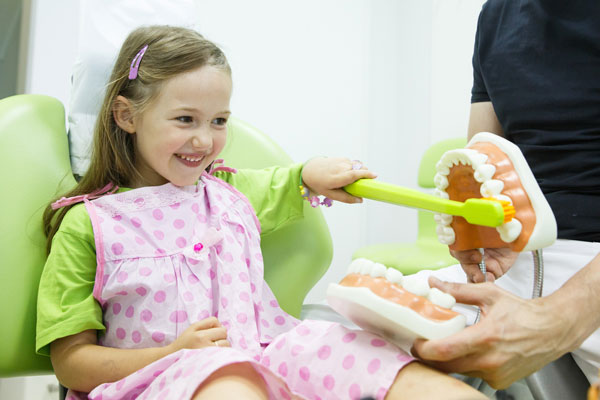
Many parents find dental care for their kids confusing. Although they know that preventing cavities is one of the goals of dental care, they don’t always know how to do it. Getting your information right is therefore important to ensure that your kids have healthy teeth and gums. If you’re looking for a dental service provider for your little ones, Little White Tooth dentistry in Scottsdale provides exceptional pediatric dentistry services.
When and How to Brush Kids’ Teeth
Proper dental care should start before the baby gets their first tooth. Teeth start forming during the second trimester of pregnancy and when the baby is born, your baby already has their 20 first teeth, which are developed in the jaw. Here are some tips to care for your baby’s dental health:
Before the first set of teeth appears in your baby, use a clean, damp washcloth to rub over the gums. This will help remove any harmful bacteria on the gums.
When your baby’s first tooth appears, use an infant toothbrush for brushing. Using water and a small amount of fluoride toothpaste that’s about the size of a rice grain, brush the tooth. Ensure that you use fluoride toothpaste that’s approved by the American Dental Association or ADA. If you’re using infant toothpaste without fluoride, you’d still want to use the same amount to lessen the amount of toothpaste the baby can swallow.
If you can see that your baby’s teeth are touching, you can start flossing between them.
By age 2, your kid should know how to spit when brushing. Don’t give your child water to swish and pit because it increases the likelihood of your child swallowing toothpaste.
Give only a pea-sized amount of fluoride toothpaste to kids aged 3 and up.
Supervise children younger than 8 years old while brushing their teeth.
Tooth decay can develop in babies if they don’t follow good feeding habits. Moreover, their teeth can be destroyed if they fall asleep with a bottle as the enamel can wear down due to the sugars from the milk that stay on the teeth for a long time. This condition is called bottle mouth. Discolored, pitted, and pocked front teeth are signs bottle mouth. Kids that have severe cases of bottle mouth may have cavities and end up having their front teeth pulled.
Parents should set specific drinking times of the day since sucking on a bottle the whole day can also be harmful to their teeth. By 6 months, babies should be taught to switch from a bottle to a sippy cup. By 1 year old, the child should have the required motor skills and coordination to drink from the cup on their own.
When to Visit the Dentist

The ADA recommends that kids visit the dentist by the time they reach the age of 1. During the first visit, the dentist will discuss the correct brushing and flossing practices. They will also perform a dental examination on the child.
Regularly visiting the dentist can help identify the problems early on while helping the child to get used to visiting the dentist so they don’t develop fear as they grow older.
Bring your child to a pediatric dentist who is trained to tackle the different issues related to children’s dental health. The pediatric dentist can also refer you to another specialist such as an oral surgeon or an orthodontist for other problems.
How to Prevent Cavities
When food and bacteria are left on the teeth, acid starts collecting and softens the enamel until a hole or cavity is formed. Here are some tips to prevent cavities:
Teach good oral habits early on. Have your kids brush their teeth at least two times each day using fluoride toothpaste. Also, help them floss regularly and teach them the benefits of proper dental health.
Provide fluoride protection. The use of fluoride help strengthens the enamel, making it difficult for cavities to form. Although many places require fluoride in their tap water, some don’t. If the water supply in your area isn’t fluoridated or you use purified water at home, ask the dentist for fluoride supplements. Supplementing should also be done with caution since excessive fluoride can also cause tooth discoloration. Always consult with a dentist before supplementing.
Limit sugary foods. Candy, juices, and other sweet treats can increase the likelihood of forming cavities. If your child eats sweet foods, make them brush their teeth or rinse their mouth after eating.
Final Thoughts
As your children grow, schedule routine dental visits according to the dentist’s recommendation. The checkups can vary from once every 3 months to once every year. Limit your child’s sugary food intake and encourage the practice of good dental health care early. All these steps will keep your child’s dental health in check.



























